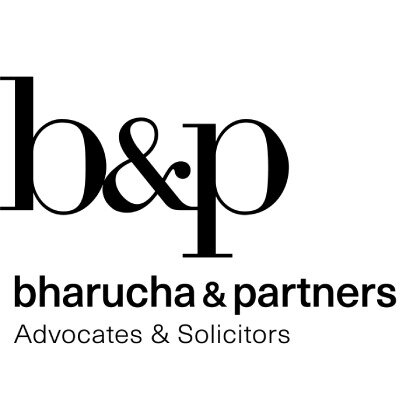Best Public-Private Partnerships (PPP) Lawyers in Mumbai
Share your needs with us, get contacted by law firms.
Free. Takes 2 min.
List of the best lawyers in Mumbai, India
About Public-Private Partnerships (PPP) Law in Mumbai, India
Public-Private Partnerships, commonly known as PPPs, are collaborative agreements between government entities and private sector companies to finance, build, and operate projects that serve the public interest. In Mumbai, PPPs are often utilized in infrastructure sectors such as transportation, water supply, sanitation, healthcare, education, and urban development. The primary purpose of PPPs is to leverage private sector investment, expertise, and efficiency while fulfilling public service goals set by government authorities. Given Mumbai's rapid urbanization and infrastructure needs, PPPs play a critical role in addressing developmental challenges without straining public finances.
Why You May Need a Lawyer
Navigating the legal landscape of PPPs can be complex, given the involvement of multiple stakeholders, significant financial investments, and strict regulatory frameworks. Common situations where legal assistance becomes essential include:
- Drafting or reviewing concession, lease, or operation agreements - Advising on risk allocation, revenue models, and dispute resolution mechanisms - Ensuring compliance with central and state government regulations - Conducting due diligence on project viability and legal obligations - Handling negotiations with government agencies or private partners - Addressing disputes arising during the project implementation or operation - Managing land acquisition, environmental clearances, and permits - Navigating public procurement norms and tender processes - Dealing with changes in law or policy that may affect ongoing or upcoming PPP projects - Assisting with finance closure and project restructuring if needed
An experienced lawyer can guide stakeholders through each stage of a PPP, minimizing legal risks and ensuring the smooth execution of projects.
Local Laws Overview
In Mumbai, PPPs are governed by both national and state-level frameworks, as well as by rules created by municipal bodies. Some key legal aspects include:
- The Government of India’s Policy on Public-Private Partnership and the Model Concession Agreements (MCAs) serve as reference templates for numerous sectors. - The Maharashtra Infrastructure Development Enabling Act, 2016, provides the statutory backbone for PPP projects in Maharashtra, including Mumbai. - Specific sectoral regulations, such as those relating to transport or utilities, may outline additional requirements for PPP projects. - The Brihanmumbai Municipal Corporation (BMC) and Mumbai Metropolitan Region Development Authority (MMRDA) often issue guidelines or tender documents that set out project-specific rules. - Indian Contract Act, 1872 governs general contractual aspects. - The Right to Fair Compensation and Transparency in Land Acquisition, Rehabilitation and Resettlement Act, 2013 is relevant if land acquisition is involved. - Environmental clearances are mandated under relevant state and national laws. - Procurement processes typically follow government guidelines to ensure transparency and competitive bidding. - Dispute resolution may occur through arbitration, courts, or sector-specific tribunals.
Understanding these overlapping legal regimes is crucial for successful PPP planning and implementation in Mumbai.
Frequently Asked Questions
What is a Public-Private Partnership (PPP)?
A PPP is a collaborative arrangement where a government body partners with a private sector company to develop infrastructure or provide public services, sharing risks and rewards as part of a contractual agreement.
Which sectors in Mumbai commonly use PPP models?
PPPs are predominant in sectors like roads and transportation, urban housing, water supply and sanitation, solid waste management, healthcare, and education in Mumbai.
Who can enter into PPP agreements in Mumbai?
Eligible parties include government agencies, such as municipal corporations, and private parties including corporations, joint ventures, and consortiums with the capacity to implement large-scale projects.
What are the main types of PPP models used in Mumbai?
Common PPP models include Build-Operate-Transfer (BOT), Build-Own-Operate (BOO), Lease-Develop-Operate (LDO), Design-Build-Finance-Operate (DBFO), and Hybrid models, depending on project needs and risk allocation.
How are PPP projects awarded in Mumbai?
Projects are typically awarded through a competitive bidding process, following transparent procurement procedures led by government authorities and based on guidelines set by relevant laws and agencies.
Are there any special permits or approvals required for PPP projects?
Yes, most PPP projects require several permits and approvals, including land clearances, environmental and forest clearances, building permits, and sometimes clearances from sector-specific regulators.
What are the typical risks involved in PPPs and how are they managed?
Risks can include construction delays, revenue shortfalls, regulatory changes, and dispute risks. These are usually managed by allocating them contractually between the public and private partners based on their ability to handle each risk.
Can foreign companies participate in PPPs in Mumbai?
Yes, subject to foreign direct investment (FDI) regulations and sectoral caps, foreign companies can participate either individually or through joint ventures in Mumbai’s PPP projects.
What happens if there is a dispute between partners in a PPP project?
Dispute resolution mechanisms are usually specified in the PPP contract and may include negotiation, mediation, arbitration, or litigation in courts as per Indian law.
How do I find a lawyer experienced in PPPs in Mumbai?
You can consult law firms with infrastructure and project finance practices, check with the Bar Council of Maharashtra and Goa, seek referrals from industry associations, or approach specialized PPP advisory bodies.
Additional Resources
When seeking legal advice or further information on PPPs in Mumbai, you may find the following resources helpful:
- Maharashtra Infrastructure Development Enabling Authority (MIDAS), established under the Maharashtra Infrastructure Development Enabling Act - Mumbai Metropolitan Region Development Authority (MMRDA) - Brihanmumbai Municipal Corporation (BMC) PPP Cell - Public-Private Partnership Cell, Department of Economic Affairs, Ministry of Finance, Government of India - Confederation of Indian Industry (CII) and Federation of Indian Chambers of Commerce and Industry (FICCI) for industry-specific guidance - Bar Council of Maharashtra and Goa for lawyer referrals - Indian Council of Arbitration for information on dispute resolution - PPP toolkits and guidelines issued by the World Bank or Asian Development Bank relevant to Indian projects
Next Steps
If you require legal assistance regarding a PPP project in Mumbai:
- Gather all relevant project documents, including tenders, contracts, and correspondence - Identify the specific legal issues or challenges you are facing - Research and shortlist law firms or lawyers with expertise in PPPs and infrastructure law - Schedule a consultation to discuss your case and obtain advice on the best way forward - Prepare questions regarding your rights, obligations, risk exposure, and possible solutions - Stay proactive about compliance and keep updated on changes in the legal and regulatory environment - Always ensure that your lawyer is familiar with both national and local PPP laws, as well as the practical aspects of executing such projects in Mumbai
Taking timely legal advice can help safeguard your interests and contribute to the overall success of your PPP endeavour in Mumbai.
Lawzana helps you find the best lawyers and law firms in Mumbai through a curated and pre-screened list of qualified legal professionals. Our platform offers rankings and detailed profiles of attorneys and law firms, allowing you to compare based on practice areas, including Public-Private Partnerships (PPP), experience, and client feedback.
Each profile includes a description of the firm's areas of practice, client reviews, team members and partners, year of establishment, spoken languages, office locations, contact information, social media presence, and any published articles or resources. Most firms on our platform speak English and are experienced in both local and international legal matters.
Get a quote from top-rated law firms in Mumbai, India — quickly, securely, and without unnecessary hassle.
Disclaimer:
The information provided on this page is for general informational purposes only and does not constitute legal advice. While we strive to ensure the accuracy and relevance of the content, legal information may change over time, and interpretations of the law can vary. You should always consult with a qualified legal professional for advice specific to your situation.
We disclaim all liability for actions taken or not taken based on the content of this page. If you believe any information is incorrect or outdated, please contact us, and we will review and update it where appropriate.

















